“I make work to elicit some kind of response, and to move people,” says Sunil Gupta (68), the Delhi-born Canadian photographer whose visual chronicles paying homage to the lives of gay men feature in a stunning retrospective at The Photographers’ Gallery in London. Titled “From Here to Eternity”, this exhibition is on from 17 to 31 May. It draws from work created over five decades of documenting his own sexual awakening, a growing political consciousness around issues of race and migration, and the experience of living with HIV. Curated by Mark Sealy, it is a fitting celebration of Gupta’s journey as an artist and activist enraptured by the pursuit of love and deeply committed to the fight for gay rights. Sealy, who is a cultural historian, is the director of Autograph-ABP. It was formerly known as the Association of Black Photographers, and was co-founded by Gupta. “What does it mean to be a gay Indian man? This is the question that follows me around everywhere I go and is still ever present in my work,” says Gupta. The retrospective brings together work from 16 of his series capturing various time periods and geographies — Christopher Street, The Exiles, The New Pre-Raphaelites, Memorials, Reflections of the Black Experience, and Trespass. [caption id=“attachment_9651451” align=“alignnone” width=“640”] 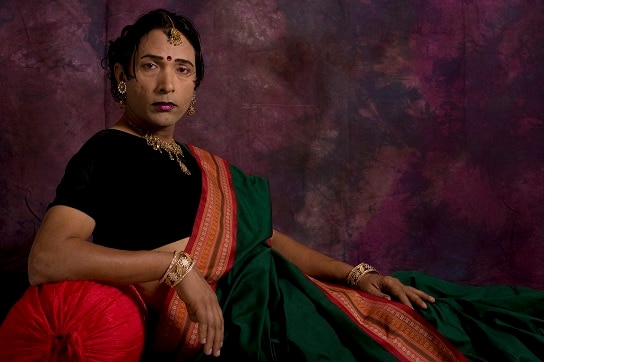 Sunil Gupta. Untitled #13, 2008. From the series The New Pre-Raphaelites. Courtesy the artist and Hales Gallery, Stephen Bulger Gallery and Vadehra Art Gallery. © Sunil Gupta. All Rights Reserved, DACS 2020[/caption] [caption id=“attachment_9651461” align=“alignnone” width=“640”] 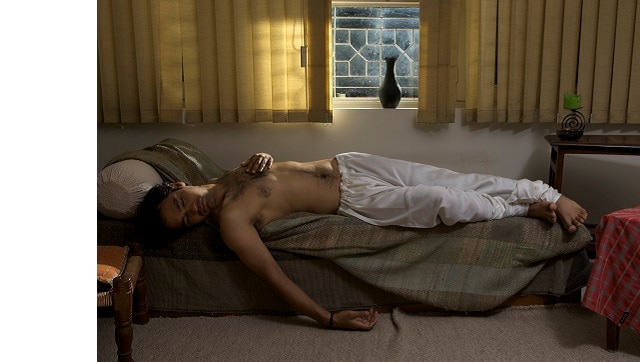 Sunil Gupta. Untitled #7, 2008. From the series The New Pre-Raphaelites. Courtesy the artist and Hales Gallery, Stephen Bulger Gallery and Vadehra Art Gallery. © Sunil Gupta. All Rights Reserved, DACS 2020[/caption] Gupta has spoken at length about his childhood in India, migration to Canada, sexual experiences, education, activism and academic research, the stigma of HIV/AIDS in India, his marriage to photographer Charan Singh, and living in London, in an interview with writer and organiser Theodore Kerr. It was conducted in 2017 for the Archives of American Art’s Visual Arts and the AIDS Epidemic: An Oral History Project in New York. Edited excerpts from an exclusive email interview with Gupta about the retrospective: How do you look back at the life you have led as an artist and activist? Looking back over a life, there are always moments of regret and wondering whether certain decisions ought not to have been made and where that might have led. Especially in relation to my various migrations from Delhi to Montréal, from Montréal to London via New York, and from London back to Delhi, and then a return to London. It really shook my notion of any kind of permanent home. But aside from that, I count my blessings as I have been lucky to have been a visual artist and photographer who has been able to make public the various difficulties of the everyday that I encountered whilst living this life. In a way this has saved me from the void of silence. In 1970, I encountered the idea of “coming out” in Montréal as a young gay man. It completely transformed my life in a way that would not have been possible had I stayed on in India. What has been your source of inspiration or nourishment in the most difficult times? Mainly it has been work. Whenever the going gets difficult, I respond by reaching out to my work. I have many unfinished projects including a lifelong archive of photos, negatives, prints and slides that are waiting to be archived and annotated. I was also very fortunate that I had signed up with the commercial art gallery Hales just before the pandemic and I had also signed up with the publisher Stanley Barker to make several photo books. All of this production as well as the complications of spending 24 hours a day with my partner for a year has kept me very distracted from the difficult times around us. How does it feel to have five decades of your work condensed into a single exhibition? It feels quite extraordinary. And, of course, it doesn’t fit into a single exhibition. But it’s very exciting to see that there is this kind of continuity from the very beginnings of my work till now. That some of the crucial questions that I was asking in my youth are still relevant to me today. So now I feel justified despite all of my self-doubts over the years [over] the common critique of my work that it needed to extend itself into some kind of more grown-up version of a universal experience. [caption id=“attachment_9640851” align=“alignnone” width=“640”] 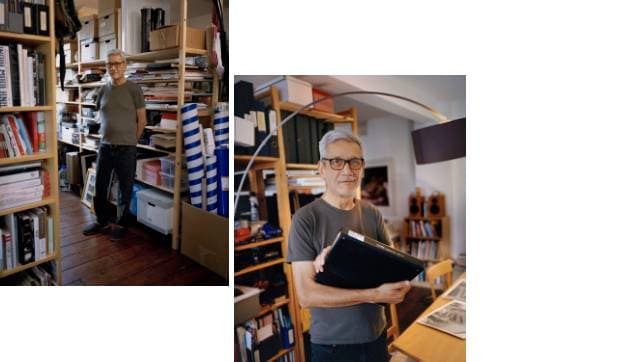 ‘I strongly believe that I make work to elicit some kind of response, and to move people,’ says Gupta[/caption] [caption id=“attachment_9640841” align=“alignnone” width=“640”]  Sunil Gupta in his London Studio, in March 2020. Photos by James Proctor[/caption] What made you trust Mark Sealy’s vision as the curator of this retrospective? For many reasons. He’s a good friend, and has been for many years. We have talked pictures since we met in the early 1990s. He has commissioned two of the bodies of work in this exhibition. And, of course, he has an enormous reputation as the director of Autograph-ABP and as a curator of several exhibitions and editor of many books and publications for the last 30 years. Under his leadership, Autograph-ABP has survived the upheavals of the last few decades where many, many others have failed. Finally, this exhibition is the result of all the work that he has done to make it happen over the last five years. It was initially his idea. What does it mean for you to have this retrospective during the current pandemic, which brings back memories from the AIDS epidemic for many who have lived through that time? Well at first, it had that feeling of, “oh well, here we go again”. But as the situation quickly deteriorated and the number of deaths grew exponentially and we realised that the virus was airborne so anyone could get it without actual physical contact, we realise that this was much more serious in a way. My first response was to wonder whether, as a person living with HIV, I would be more susceptible to COVID. However, in terms of the cultural response to this pandemic, it’s been a very different response as it’s not targeting specific marginalised minorities as was the case with HIV. How do you want to be seen by people who are encountering your work for the first time, and people who have followed your journey over a longer period? I think audiences encountering my work for the first time, meaning that they are a younger audience, I imagine that they are both more appreciative of the issues I’m trying to raise as well as hopefully becoming aware that these issues used to play such a huge role in our social and political lives not that long ago. And regarding the people following my work for a longer period of time, I hope that they appreciate that I was justified in keeping my focus to those few issues that continue to have a bearing on my life. In your opinion, why do certain audiences view nudity as provocative rather than quotidian, pornographic rather than erotic? I think the answer lies in the medium being used. Nudity in photography is, by its very nature, very close to pornography. Even though the relationship between the model and the artist/photographer is much the same in painting and other visual media, I’ve had more issues with my photography than I’ve heard or read about involving contemporary paintings and sculptures, even though they contain much more explicit renderings of genitals and sexual acts. [caption id=“attachment_9651421” align=“alignnone” width=“640”] 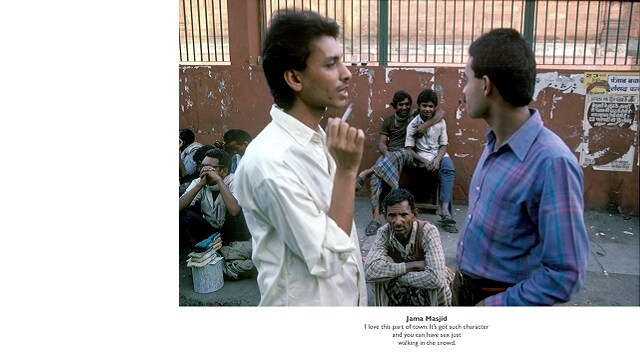 (Above) Sunil Gupta. Jama Masjid, 1987. From the series Exiles. Courtesy the artist and Hales Gallery, Stephen Bulger Gallery and Vadehra Art Gallery. © Sunil Gupta. All Rights Reserved, DACS 2020[/caption] [caption id=“attachment_9651441” align=“alignnone” width=“640”] 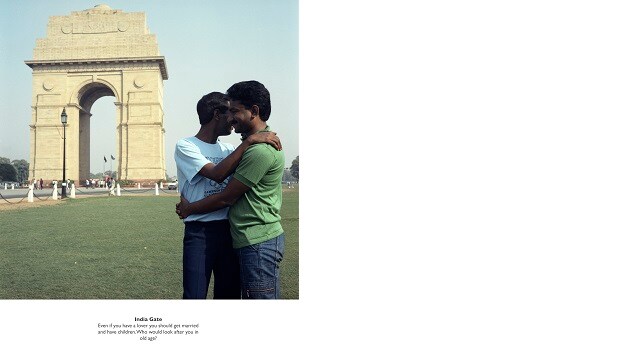 (Above) Sunil Gupta. India Gate, 1987. From the series Exiles. Courtesy the artist and Hales Gallery, Stephen Bulger Gallery and Vadehra Art Gallery. © Sunil Gupta. All Rights Reserved, DACS 2020[/caption] When you see people react with discomfort, what does that evoke in you as the creator of the images that made them uncomfortable? I’m usually delighted that the images provoke some kind of response even if it’s negative and makes people feel uncomfortable. I strongly believe that I make work to elicit some kind of response, and to move people. In what way has the changing landscape of LGBTQ rights in India affected the reception of your work? Some parts of the work in India is exactly that, made as it was at the time of the change: A change, a reverting of the law and a final year of another reverting. Since the police barged in and shut down my show at the Alliance Française Gallery in New Delhi in 2012, there really has not been another attempt at showing any kind of work in India that might be deemed as provocative. So, although the law has now changed in our favour, the cultural landscape remains politically difficult. How do you relate to the word ‘queer’, which was once used as a slur but is now being reclaimed by many as a term of self-identification? Growing up in Delhi in the ‘50s and ‘60s I only heard the word queer in relation to upper middle-class college-age boys. Coming to live in Canada, I became more aware that it also had a usage as a slur. But, by then, the ownership of a word such as that was becoming more and more commonplace within the gay liberation movement. I can remember that some groups were even named things like “Flaming Faggots of America”. Who are your favourite queer artists across forms and disciplines? Chitra Ganesh (New York); Hinda Schuman (Philadelphia); Emily Andersen, Tessa Boffin, Charan Singh (London). [caption id=“attachment_9651471” align=“alignnone” width=“640”] 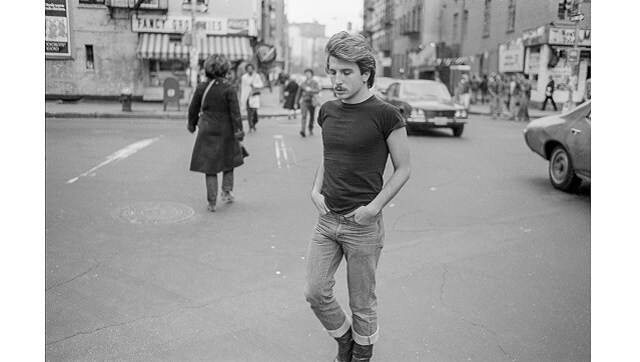 Sunil Gupta. Untitled #22, 1976. From the series Christopher Street. Courtesy the artist and Hales Gallery, Stephen Bulger Gallery and Vadehra Art Gallery. © Sunil Gupta. All Rights Reserved, DACS 2020[/caption] From Here to Eternity: Sunil Gupta. A Retrospective is on display at The Photographers’ Gallery, London from 17 May-31 May 2021. tpg.org.uk * Chintan Girish Modi is a writer, educator and researcher who tweets @chintan_connect
A retrospective on Gupta at The Photographers’ Gallery in London draws from work created over five decades of documenting his own sexual awakening, a growing political consciousness around issues of race and migration, and the experience of living with HIV.
Advertisement
End of Article


)
)
)
)
)
)
)
)
)



